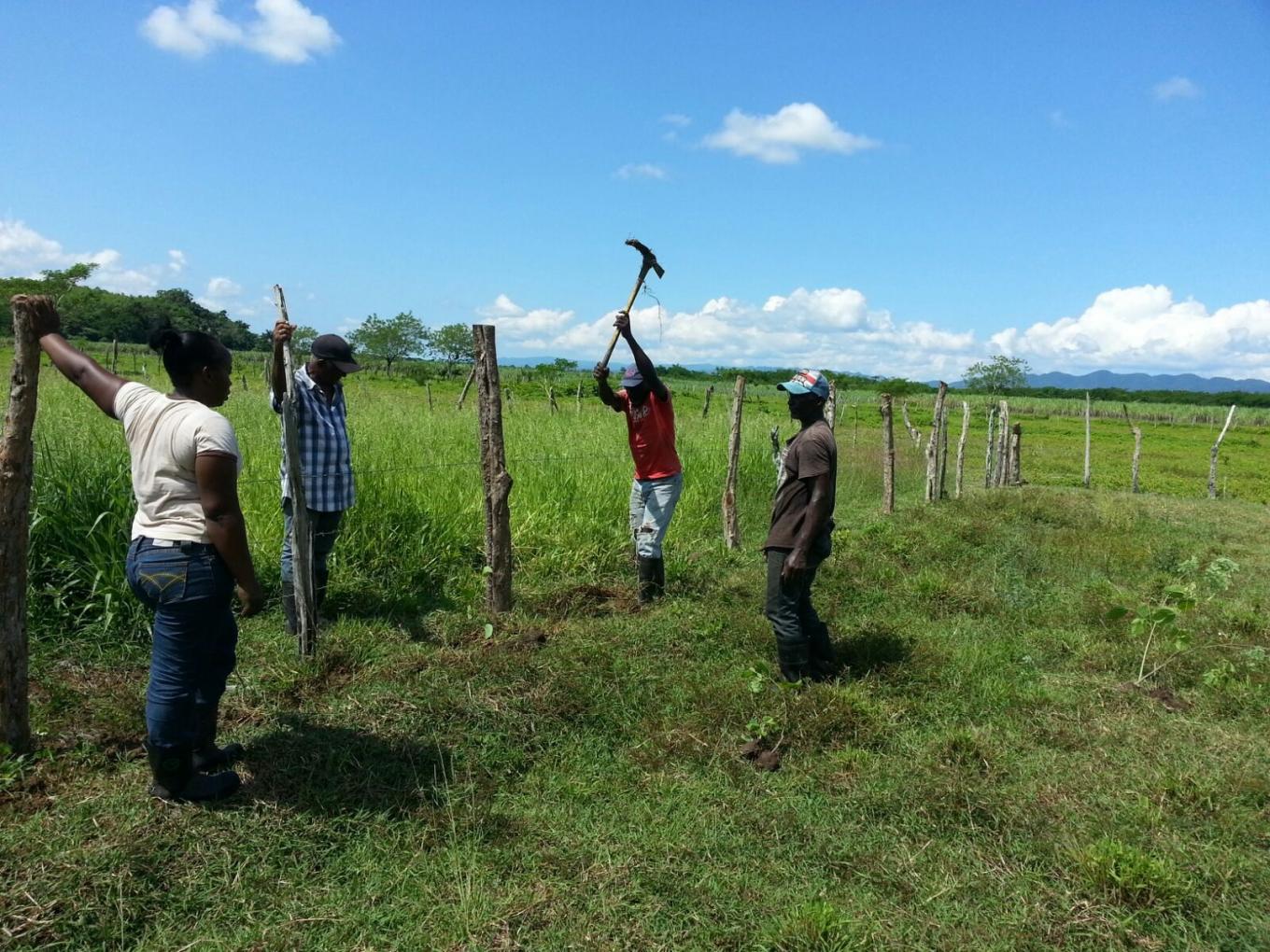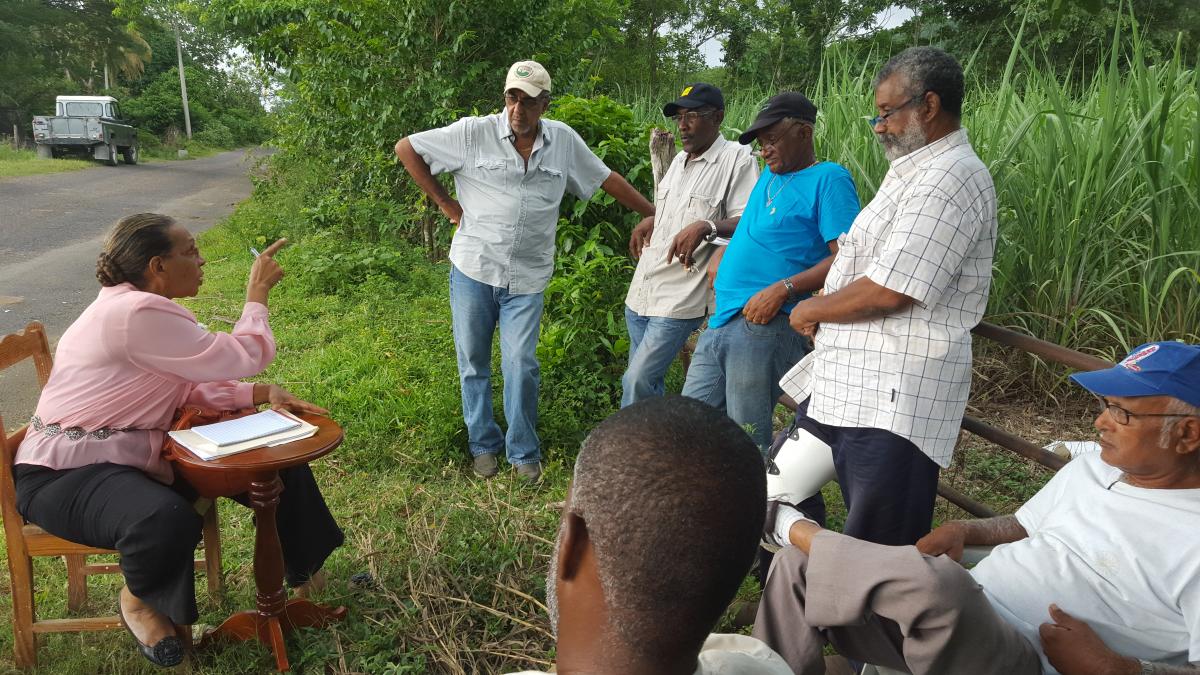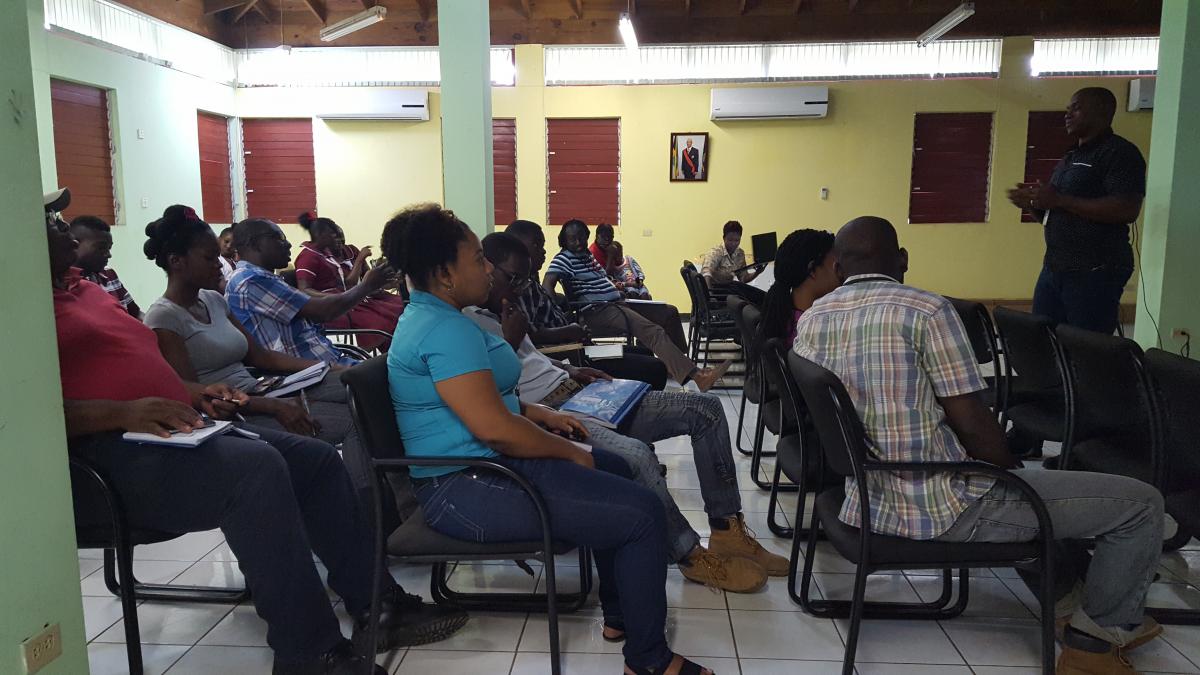Main actions focus on silvo-pastoral systems, enterprise development plan, capacity building of dairy clusters and data collection.

Kingston, 9 May, 2017 (IICA). The Jamaica Delegation of the Inter-American Institute for Cooperation on Agriculture and the Jamaica Dairy Development Board (JDDB) are working jointly to build the livestock sector in country. A technical cooperation agreement signed between the two entities in October 2015, focuses on strengthening the governance of local Farm Enterprises and promoting sustainable development plans, establishment of silvo-pastoral demonstration plots for proper animal nutrition, adoption of good climate change adaptation practices and building the technical capacity of livestock officers.
This agreement now benefits three dairy farmers’ groups in Jamaica, was developed from the results of a Rapid Response Action in 2014 requested by the JDDB.
Silvo-pasture demonstration sites
Silvo-pastoral systems maximize the synergies of pasture management and agro-forestry to increase farm output. The incorporation of forages of high nutrient value and timber or fruit trees reduces expenditure on commercial feeds, increases the availability of feed in periods of drought, and provides a source of feed that is more in line with the nutrition and physiology of ruminants.
This system diversifies the sources of income from the farm enterprise, as the farmer is also able to earn from the timber trees. Some of the main achievements in this area are:
- 9 silvo-pastoral demonstration sites have been established in the parishes of Hanover, Trelawny, St. Elizabeth, Portland, Clarendon and St. Mary.
- 3500 plants were established using 7 forage plant varieties.
Capacity building of Dairy Clusters

Three dairy clusters, with an overall membership of 70 farmers, have been receiving support to strengthen their governance structures through a collaborative effort between IICA and the Department of Cooperatives and Friendly Societies (DCFS).
The groups are in the process of re-registration and registration as legal entities. After the registration process is completed, the groups will become cooperatives.
Specific areas for strengthening were identified by IICA through analysis of the groups, and a capacity building consultant was contracted by the Institute to facilitate the organizational strengthening of the three groups.
Enterprise plan development
Enterprise plans have been developed for two of the dairy groups and a third is being completed. The enterprise plans have proposed various types of agribusiness ventures that the groups can pursue, and will assist the groups to access financing from various funding agencies.

Data collection training for livestock officers
15 research officers from the Ministry of Industry, Commerce, Agriculture & Fisheries (MICAF) at the Bodles Research Station received training in on-farm data collection. The primary objectives of the intervention were to improve the skills of the officers to collect data and to enhance the internal systems for standardizing the reporting process.
Some of the topics covered during the training included: forage management and evaluation, data collection for the evaluation of silvo-pastoral systems, data representation for reporting and analytical statistics. The intervention will improve the validity and reliability of reports provided by the research institution to farmers and other sector stakeholders.
More information:
Elizabeth Johnson, IICA Representative in Jamaica.











